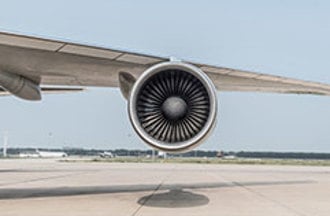
Translations:
Miami – The International Air Transport Association (IATA) is renewing its call to governments across Latin America and the Caribbean to provide urgent financial relief to airlines. While many governments are restricting passenger traffic, all must maintain vital economic links to global supply chains via air cargo. And governments will need airlines to be ready to play their role as an economic catalyst in the recovery. With many airlines quickly running out of cash, both these vital roles are in danger.
“We have a public health crisis the response to which is creating an economic crisis. Airlines fully support measures to fight the virus. But governments should not willingly make the economic crisis deeper by allowing the airline sector to fail. That will risk connectivity, prolong the pain for employees across the tourism value chain and hamper the recovery,” said Alexandre de Juniac, IATA’s Director General and CEO.
IATA is calling for:
- Direct financial supportto passenger and cargo carriers to compensate for reduced revenues and liquidity attributable to travel restrictions imposed as a result of COVID-19;
- Loans, loan guarantees and supportfor the corporate bond market by the Government or Central Banks. The corporate bond market is a vital source of finance, but the eligibility of corporate bonds for central bank support needs to be extended and guaranteed by governments to provide access for a wider range of companies.
- Tax relief:Rebates on payroll taxes paid to date in 2020 and/or an extension of payment terms for the rest of 2020, along with a temporary waiver of ticket taxes and other Government-imposed levies.
“The impact on airlines in the region of this crisis has been nothing short of brutal. Passenger traffic has ground to a halt and revenue streams have dried up. Even if there was demand for travel, government restrictions have made it impossible to operate. No amount of cost cutting will save airlines from a liquidity crisis that is imminent and will be severe. Governments must act immediately,” said de Juniac.
Governments across the globe have already agreed to measures enabling airlines to stabilize their short-term liquidity:
- Norway offered US$537 million in loan guarantees.
- Finland provisionally agreed to provide a state guarantee of up to US$642 million.
- Dubai announced US$400 million economic stimulus for Tourism and Hospitality sector
- Singapore: Announced a comprehensive Aviation Sector Assistance Package valued at US$80 million
- Brazil has announced air transport specific relief measures, including deferment of fees and taxes.
The current crisis is not only heavily affecting the airline industry but is already having knock-on effects on other sectors of the national economies in Latin America and the Caribbean. In many countries aviation forms the backbone of various related sectors and:
- supports a total 7.2 million jobs,
- annually handles 4.1 million tonnes of air cargo,
- provides connectivity to 385 cities across the region,
- links the region to 160 cities in other parts of the world, and
- contributes US$167 billion to the region's GDP.
This vital contribution to the economies and social wellbeing is now under threat. Without it, related industries in the value-chain will suffer, especially tourism, which in many countries in an essential source of income.
Brazil and Paraguay are examples of governments in the region which have taken initial measures, mainly centered on deferral of payments and reduction or changes in taxation. These actions need to inspire other governments across the region. No country is immune to the virus or to the severe economic damage that it is causing. Fast and decisive action is needed now to ensure essential liquidity. Otherwise a vital economic enabler will go under, just when it is needed most to keep essential supply lines moving and in advance of a recovery where it will be required to re-link countries and people,” said de Juniac.
For more information, please contact:
Corporate Communications
Tel: +41 22 770 2967
Email: corpcomms@iata.org
Notes for editors:
- IATA (International Air Transport Association) represents some 290 airlines comprising 82% of global air traffic
- You can follow us at twitter.com/iata for announcements, policy positions, and other useful industry information

